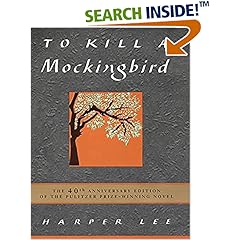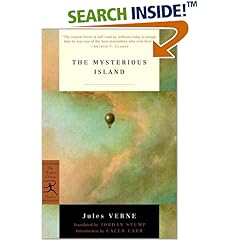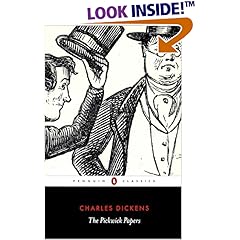Melissa Wiley In the Bonny Glen wrote about seasonal reading choices here. She asks the question, “How do the seasons affect your reading choices?”
Then later on in the post she says that Charlotte’s Web may be the best summer book ever. I agree that Charlotte’s Web is meant to be read in the summertime, and it may be the best. However, I thought I’d list a few other summer books; it may not be summer yet where you live, but it’s definitely headed that direction here in Houston. Karate Kid started swim team practice yesterday.
Picture Books
 Roxaboxen by Alice McLarren. A group of children in Arizona or New Mexico, somewhere dry and desert-y, make a play town out of old woden crates, rocks, cacti and desert glass. The illustrations are by Barbara Cooney. This book remends me of the story Engineer Husband tells of making “towns” in the dirt in his backyard and then flooding them with the garden hose. Except I don’t think Roxaboxen ever suffered any floods.
Roxaboxen by Alice McLarren. A group of children in Arizona or New Mexico, somewhere dry and desert-y, make a play town out of old woden crates, rocks, cacti and desert glass. The illustrations are by Barbara Cooney. This book remends me of the story Engineer Husband tells of making “towns” in the dirt in his backyard and then flooding them with the garden hose. Except I don’t think Roxaboxen ever suffered any floods.
Nothing To Do by Russell Hoban. I love this book. Unfortunately, it’s out of print. Walter Possum, a Frances-like character but related only by author, is bored and can find nothing to do. When he complains his father gives him a “magic stone” that will give him ideas if he will only rub it and think really hard and wait for the ideas to come. This one is just as good as the Frances books, and I wish I owned a copy.
 The Moon Jumpers by Janice May Udry Illustrated by Maurice Sendak. Four children play together on a summer evening under the light of the moon.
The Moon Jumpers by Janice May Udry Illustrated by Maurice Sendak. Four children play together on a summer evening under the light of the moon.
The Summer Night and The Storm Book by Charlotte Zolotow One’s about a summertime walk at night, and the other’s about a summer thunderstorm. Both are beautiful and delightful, perfect for summer’s day or evening. Charlotte Zolotow wrote gentle, easy-to-digest stories about normal everyday occurrences. These make good bedtime stories, too.
Harry by the Sea by Gene Zion. Harry, a white dog with black spots, tries to find a way to cool off at the seashore.
For children and for reading aloud
 The Penderwicks: A Summer Tale of Four Sisters, Two Rabbits, and a Very Interesting Boy by Jeanne Birdsall. I wrote about our reading this book aloud here. Suffice it to say, we enjoyed this one very much, and I wouldn’t be surprised if the urchins picked it up and re-read it this summer.
The Penderwicks: A Summer Tale of Four Sisters, Two Rabbits, and a Very Interesting Boy by Jeanne Birdsall. I wrote about our reading this book aloud here. Suffice it to say, we enjoyed this one very much, and I wouldn’t be surprised if the urchins picked it up and re-read it this summer.
 Thimble Summer by Elizabeth Enright. Garnet finds a silver thimble, the summer on her family’s farm becomes a magical one in which fun and interesting things happen to Garnet and her family. This book reminds me of Charlotte’s Web in a way; I guess its because of the fair in which Garnet’s pig wins a prize. Gone-Away Lake by the same author is also a summer time book.
Thimble Summer by Elizabeth Enright. Garnet finds a silver thimble, the summer on her family’s farm becomes a magical one in which fun and interesting things happen to Garnet and her family. This book reminds me of Charlotte’s Web in a way; I guess its because of the fair in which Garnet’s pig wins a prize. Gone-Away Lake by the same author is also a summer time book.
 Swallows and Amazons by Arthur Ransome. A group of children sail boats and camp and have adventures, the Swallows versus the Amazons. There’s a whole series of these books, and we haven’t read them all. However, this summer may be a good time to make a start on the list.
Swallows and Amazons by Arthur Ransome. A group of children sail boats and camp and have adventures, the Swallows versus the Amazons. There’s a whole series of these books, and we haven’t read them all. However, this summer may be a good time to make a start on the list.
Young Adult Books:
 The Moon By Night by Madeleine L’Engle. One really ought to read Meet the Austins before reading this one and Ring of Endless Light afterwards. But this one is the summer book. The Austin family goes on a cross-country camping trip, and Vicky, age 15, meets some interesting characters, including Zachary, a poor little rich boy who’s alternately fascinating and alarming.
The Moon By Night by Madeleine L’Engle. One really ought to read Meet the Austins before reading this one and Ring of Endless Light afterwards. But this one is the summer book. The Austin family goes on a cross-country camping trip, and Vicky, age 15, meets some interesting characters, including Zachary, a poor little rich boy who’s alternately fascinating and alarming.
Summer of My German Soldier by Bette Greene. A 12 year old Jewish girl from Arkansas meets a German prisoner of war and helps him to escape. As her family life deteriorates, her emotional involvement with her German friend grows. Rebecca of Bec’s Book Blog reviews Summer of My German Soldier.
Grown-up Books
 Cold Sassy Tree by Olive Ann Burns. Maybe it’s just that Southern books feel like summer books. Summer is a a big part of the setting in lots of Southern fiction. It’s just so hot down here; the heat affects the brain and makes us think and act differently than we do in the winter or than they do Up North. I can’t remember whether it’s summer or spring, but Grandpa Rucker in Cold Sassy Tree goes a little bit crazy and runs off with a woman half his age way too soon after the death of his first wife. My pastor’s wife recommended this book to me a long time ago, and I am indebted to her for the enjoyment and lessons learned.
Cold Sassy Tree by Olive Ann Burns. Maybe it’s just that Southern books feel like summer books. Summer is a a big part of the setting in lots of Southern fiction. It’s just so hot down here; the heat affects the brain and makes us think and act differently than we do in the winter or than they do Up North. I can’t remember whether it’s summer or spring, but Grandpa Rucker in Cold Sassy Tree goes a little bit crazy and runs off with a woman half his age way too soon after the death of his first wife. My pastor’s wife recommended this book to me a long time ago, and I am indebted to her for the enjoyment and lessons learned.
 To Kill a Mockingbird by Harper Lee. Of course, not all this book takes place during the summer, but it’s definitely a summer book. Atticus proves himself as a deadly shot during the dog days of August. The trial takes place in the summer in a hot, unair-conditioned courtroom. The children’s games and encounters with Boo Radley are mostly the result of a long summer with nothing to do but get into mischief. Oh, I wish I could read To Kill a Mockingbird again for the first time.
To Kill a Mockingbird by Harper Lee. Of course, not all this book takes place during the summer, but it’s definitely a summer book. Atticus proves himself as a deadly shot during the dog days of August. The trial takes place in the summer in a hot, unair-conditioned courtroom. The children’s games and encounters with Boo Radley are mostly the result of a long summer with nothing to do but get into mischief. Oh, I wish I could read To Kill a Mockingbird again for the first time.
The Great Gatsby by F. Scott Fitzgerald. Rich careless people while away a long hot summer playing at life without the energy or attention span to really focus on much of anything.
 Madeleine L’Engle’s adult books: Certain Women or A Severed Wasp or, my favorite, The Love Letters, the story of a woman who is running away from a difficult marriage. She runs to Portugal, of all places, where she learns about love and responsibility and commitment from a 17th century Portuguese nun who broke her vows for the sake of a handsome French soldier. All of these books have a summer-y atmosphere.
Madeleine L’Engle’s adult books: Certain Women or A Severed Wasp or, my favorite, The Love Letters, the story of a woman who is running away from a difficult marriage. She runs to Portugal, of all places, where she learns about love and responsibility and commitment from a 17th century Portuguese nun who broke her vows for the sake of a handsome French soldier. All of these books have a summer-y atmosphere.
So, what do you read in the summer? Does the season affect your reading choices?
I noticed that many of the books that felt like summer to me were set in the South. Are Southern novels particularly appropriate for summer because it’s almost always hot down here?
Are there movies that are especially suited for summertime viewing? Maybe that’s another post.



















